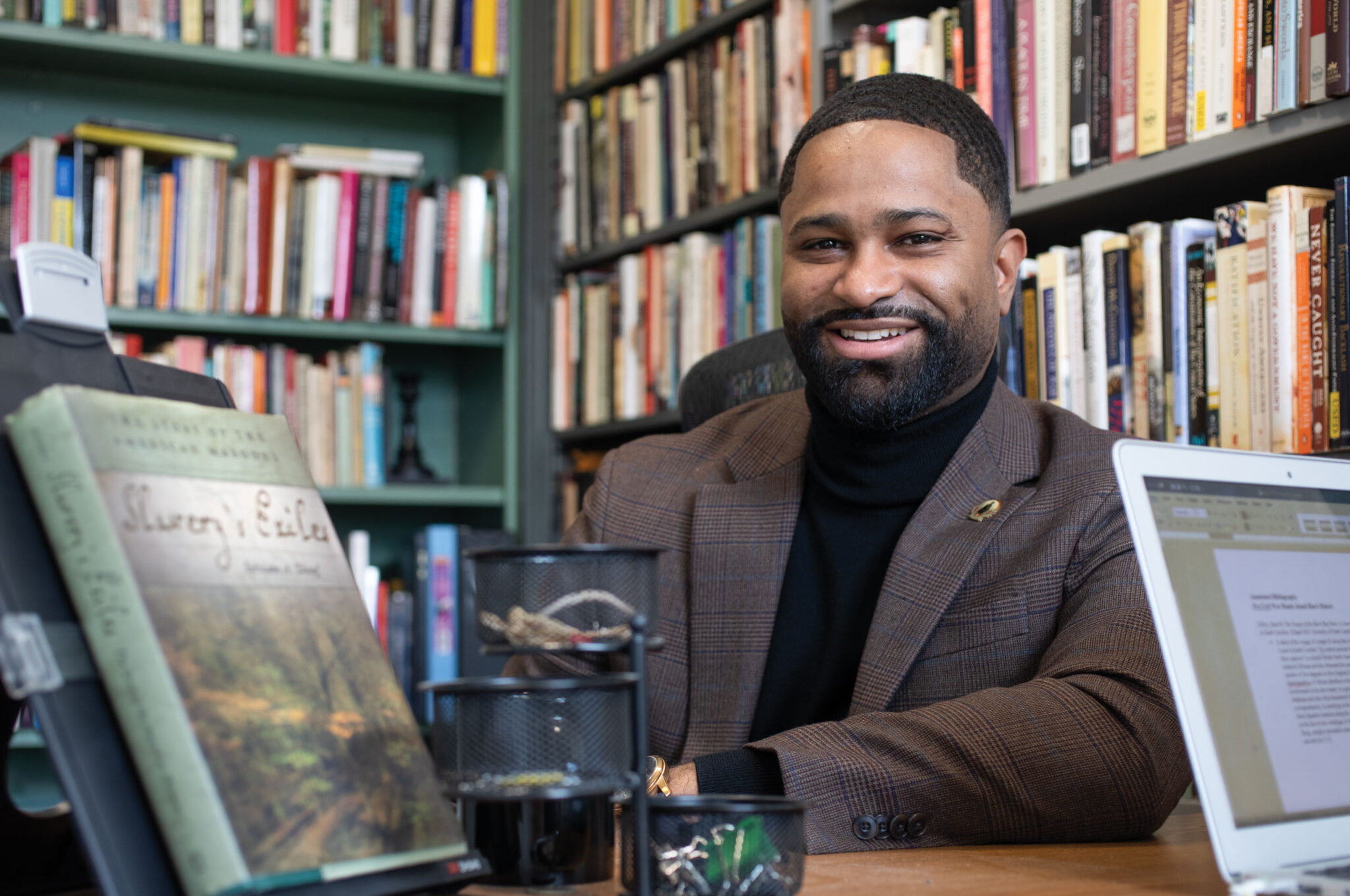Marcus Nevius featured in PBS documentary
History and Africana studies professor Marcus Nevius emphasizes the importance of networking for students. PHOTO CREDIT: uri.edu
University of Rhode Island professor Marcus Nevius’ professional journey, once filled with uncertainty, has blossomed into a fulfilling career, but not without some help along the way.
Nevius, an associate professor of history and Africana studies, acknowledged the importance of networking and professional relationships in his journey from an undergraduate student to a scholar.
He was recently featured in “Preserving Democracy: Pursuing a More Perfect Union,” a series on Public Broadcasting Service (PBS).
Nevius was given the opportunity to share his knowledge about slave history in the documentary due to a reference from his friend in the field, Alexis Coe.
Coe was contacted by PBS to be interviewed and appear in the series, when she mentioned that Nevius may be someone that they may be interested in interviewing as well.
“They reached out to me and mentioned that she had recommended me, and that was all I needed to say yes,” Nevius said. “It was an awesome experience.”
Nevius has recognized that networking could be an important stepping stone on the pathway to success.
“Networking is essential, that’s the headline,” Nevius said. “None of the professors who are on this campus were able to achieve what they have without some kind of networking, some kind of help.”
Networking can serve as an opportunity to exchange ideas, an avenue for new opportunities or a growth in status, according to Nevius. He also said that networking is important because it allows the development of relationships with mentors that can help you to train and produce professional relationships.
As Coe proved for Nevius, a simple recommendation is sometimes all you need to be given a great opportunity. A similar recommendation helped him land a mentor at The Ohio State University (OSU), where he completed his Ph.D. in 2016.
Nevius was accepted as a mentee by a professor at OSU due to one good recommendation from an old professor. Nevius was unaware of how highly his former professor thought of him, and that professor even gave Nevius one of his first C’s on campus. But he saw his potential.
“If I were to offer any advice to undergraduates who are reading this piece, that’s what’s important, you giving each class you have your very best effort,” Nevius said. “You just never know.”
Nevius also provided some advice for students about what to look for in a potential mentor.
“I’m not saying that this is a game of trying to figure out what professors are the most amenable to writing you letters, but I am trying to say that the professors that are most compatible to your interests are the people that you want to build networks and professional relationships with,” Nevius said. “It’s in that work that the paths, whatever they are, can open, and that has been the case for me since I was an undergraduate.”
Nevius initially became interested as a history as a whole, but specifically in the history of slavery and black resistance during his undergraduate years at North Carolina Central University (NCCU). Nevius thanked his professors for helping develop his interest in that concentration of world history.
“The professors there were just fascinating human beings,” Nevius said. “They were really good at not only delivering the lessons that they prepared for us, but also they were really good at engaging us as students and as human beings.”
Nevius’ professors at NCCU helped guide him in how he mentors his students at the University.
“The first thing that I try to do is to bring the same sort of human passion into the classroom that the professors I studied under at North Carolina Central brought to us,” Nevius said. “To that end I’m always really interested in engaging students who want to take up deeper projects, like senior thesis or even Master’s studies.”
Nevius also takes initiative by being aware of the opportunities that the University creates for students regarding fellowships and other programs that allow faculty and students to work together on projects.
Junior Kyle Spencer had Nevius in class and commented on his willingness to help and guide his students.
“The way he makes an impact on his students is truly valuable. He cares about his students and you can tell,” Spencer said. “The amount of feedback he would give on papers really showed that he cared and made me want to learn and get a better understanding of African American history as the semester went on.”
Spencer went on to say that with the rise of websites such as LinkedIn and Instawork, networking is only getting more important.
Nevius is thankful for those professional relationships that have personally and professionally shaped him.
“The thread of my life is networks,” Nevius said.





